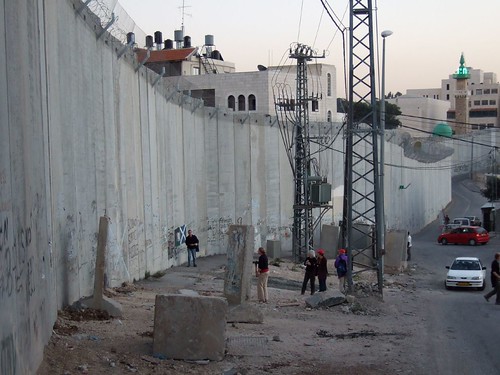
On 8 May it is Jerusalem Day, the day on which Israelis celebrate the 'unification' of Jerusalem. ACRI, the Association for Civil Rights in Israel, published a fact sheet for the occasion, which lists all the 'benefits' that the Palestinians of East-Jerusalem experience since Israel annexed their part of the city after it was conquered in 1967:
East Jerusalem – Facts and Figures
Population: 371,844 Palestinians, comprising 39% of Jerusalem’s total population.[1]
Poverty Rate: 79.5% of East Jerusalem residents and 85% of East Jerusalem children live below the poverty line – the worst rate of all time.[2]
Welfare Offices: 3
offices in East Jerusalem serve more than one third of Jerusalem’s
population while 18 such offices operate in West Jerusalem; a fourth
East Jerusalem office is expected to open; individual social worker’s
caseloads in East Jerusalem are approximately double those of West
Jerusalem.
Children at Risk: In
2012, welfare services identified 7,748 at-risk children in East
Jerusalem; 86 children who suffered from violence and neglect were taken
out of their homes over the past three years; because of the shortage
of welfare workers, not all cases are fully and speedily attended to.[3]
Shortage of Classrooms:
Only 46% of students study in official municipal schools; there is a
chronic shortage of over 1000 classrooms in East Jerusalem; despite
commitments made by Israeli authorities to the courts, only several
dozen classrooms are built annually.[4]
Shortage of Pre-Kindergartens:
There are 10 municipal pre-kindergartens in East Jerusalem as compared
to 77 municipal pre-kindergartens in West Jerusalem for the secular
sector and 96 for the national-religious sector; a government decision
to apply the Free Education Law to children aged 3-4 cannot be
implemented across East Jerusalem.
Secondary School and University: The drop-out rate for 12th graders in East Jerusalem is 40%[5];
students who pass the Palestinian high-school matriculation tests
(“Tawjihi”) find it difficult to gain acceptance into Israeli
universities; some of the degrees offered by Palestinian universities,
including the local Al-Quds University, are not recognized in Israel.
The rest is to be found here on ACRI's site.


.jpg)


No comments:
Post a Comment